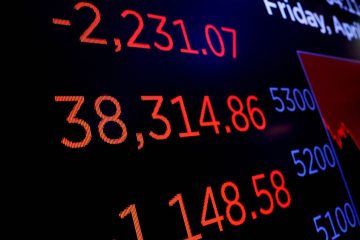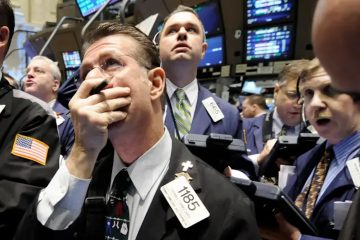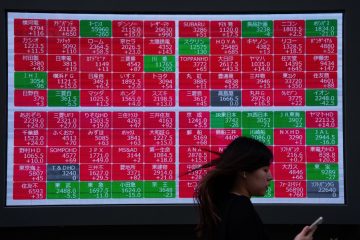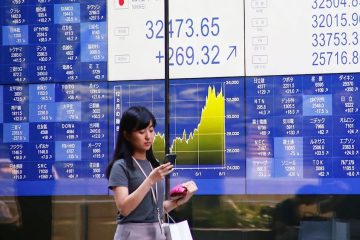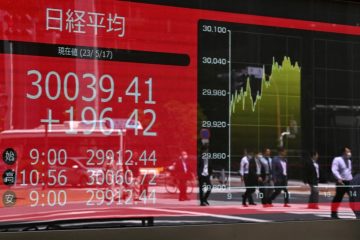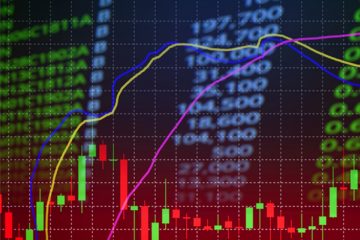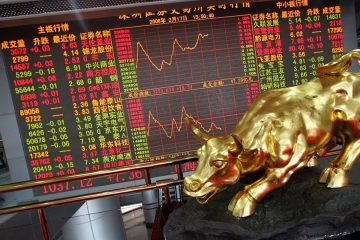Wall Street Begins to Voice Opposition to Trump’s Tariffs

In recent weeks, as the details of President Trump’s extensive tariff proposals fluctuated, major players on Wall Street maintained a reserved stance regarding their apprehensions. In the wake of a significant two-day market downturn last week, which resulted in the loss of trillions of dollars in value from U.S. stocks, various voices are emerging, including prominent figures who have previously expressed strong support for Trump.
Bill Ackman, the prominent hedge-fund manager of Pershing Square, has advocated for a 90-day suspension of tariffs to facilitate negotiations with other nations. He cautioned that failing to do so could lead to what he described as “a self-induced, economic nuclear winter.” “We are currently undermining confidence in our nation as a trading partner, a business environment, and a market for capital investment,” Ackman stated in a post on social media platform X.
U.S. stocks experienced a sharp decline shortly after the opening bell on Monday, with markets in Asia and Europe also facing significant downturns. Over the weekend, Trump and his officials staunchly defended the plan, asserting that it would ultimately benefit the country while addressing concerns regarding a potential recession. “I cannot predict the future of the markets,” Trump stated late Sunday. “I want to ensure that everything remains stable.” However, there are instances when medication is necessary to address a particular issue.
On Monday morning, Peter Navarro, trade adviser to President Trump, downplayed concerns regarding a potential recession, asserting that the stock market is poised for recovery. However, a rising number of prominent figures from Wall Street and the political arena, including some who theoretically support tariffs, are expressing concerns that the existing strategy is misdirected and could lead to significant long-term consequences. Elon Musk has expressed criticism, advocating for a free-trade agreement between the United States and Europe, while also taking to X to challenge Navarro, disparaging his “ego/brains.”
Senator Ted Cruz of Texas has expressed concerns regarding the upcoming election cycle, while an increasing number of Republican lawmakers are endorsing legislation that would enable Congress to eliminate tariffs with a straightforward majority vote.President Trump opted to circumvent the traditional lengthy process for imposing tariffs, leveraging a law from the 1970s to implement them directly. Gavin Bade of the Wall Street Journal provides an analysis of the legal implications and potential actions Congress may take in response. Image Credit: Chip Somodevilla/Getty Images
In his annual letter released on Monday, JPMorgan Chase Chief Executive Jamie Dimon expressed concerns regarding the potential impact of Trump’s tariffs on America’s long-term economic alliances, suggesting that such measures could undermine the nation’s strength.Dimon emphasized that economics serves as a longstanding unifying force, asserting that while the America First initiative is acceptable, it should not lead to isolationist policies that prioritize America at the expense of global collaboration.
Stan Druckenmiller, a prominent investor and longtime Republican, has expressed his dissent regarding the administration’s tariff strategy in a rare post on X. He stated unequivocally, “I do not support tariffs exceeding 10%,” highlighting his concerns about the proposed measures.
In a recent interview on Bloomberg Television, Howard Marks, co-chairman of the investment firm Oaktree Capital, shared his insights. “The transition from free trade and globalization to a system characterized by substantial trade restrictions in all directions marks a notable shift towards isolation for the United States.”
Druckenmiller, Ackman, and Marks garnered significant acclaim from prominent figures in the hedge fund industry, including Dan Sundheim, the leader of the substantial D1 Capital, who is known for his reserved public commentary, as well as Dan Loeb of Third Point. Loeb highlighted both conceptual and practical missteps in the policy unveiled last week, stating, “The coming days will serve as a litmus test for the administration’s judgment in contrast to its ideology as they seek to address this issue.”
Throughout the initial term of the Trump administration, several high-ranking financial executives engaged in frequent and candid discussions with Trump and his associates, providing insights and counsel. Sources familiar with the situation indicate that similar channels and discussions are not taking place this time. Financial executives have expressed their concerns regarding the tariffs to senior White House officials, including chief of staff Susie Wiles, Vice President JD Vance, Bessent, and National Economic Council director Kevin Hassett, according to a source familiar with the discussions. According to sources, the Trump team was actively engaged in listening during those discussions.
Bank chief executives are poised to encounter mounting pressure to make public statements beginning this week, coinciding with the release of their quarterly results. Investors will be closely monitoring whether these leaders choose to offer critiques of their own performance. Throughout the weekend, traders expressed astonishment at the magnitude of the tariffs announced by Trump, as well as the market’s ensuing response. “Liberation Day proved to be a highly contentious event,” stated Tony Pasquariello, head of hedge-fund coverage at Goldman Sachs, in a communication to clients on Saturday morning. “The severity of the situation caught even the most aggressive analysts off guard.”
Financial executives expressed optimism that Congressional Republicans might influence the Trump administration to delay tariffs on nations currently in negotiations with the U.S. aimed at reducing tariffs. Some analysts argued that attributing the significant losses experienced by investors solely to Trump is misguided. Michael O’Rourke, chief market strategist at JonesTrading, stated, “The Trump Administration played a role in stabilizing the market, but it cannot be held accountable for the initial exuberance that inflated it.” “The policy approach of the Trump Administration has been prominently communicated since before the election.”
Analysts on Wall Street suggest that the market may experience a rebound should Trump and his team successfully negotiate agreements with multiple nations aimed at reducing tariffs and enhancing trade terms. “As countries aim to establish agreements with the Administration, the President finds himself in a favorable position to begin securing notable achievements—he simply needs the desire to capitalize on these opportunities,” O’Rourke stated.
Many in the finance sector expressed confusion over the weekend as statements from Trump and others suggested a lack of urgency to negotiate agreements aimed at preventing impending tariffs. Additionally, it appeared that certain administration officials were not particularly worried about the significant declines in stock prices. Ed Yardeni, founder of Yardeni Research, conveyed to clients in a note on Sunday evening, “We believe that Wall Street and Main Street prosper and suffer together.” The Trump administration has expressed a differing viewpoint.

